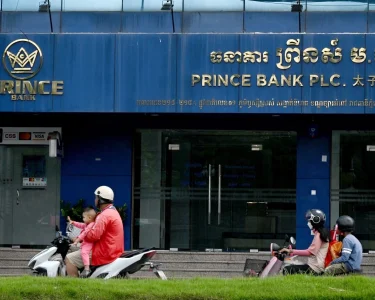Cambodia Investment Review
The United States’ recent 90-day suspension of most foreign aid grants has cast a shadow over Cambodia’s development sector, with local subcontractors facing potential cash flow disruptions. The halt, initiated by Secretary of State Marco Rubio as part of a broader review of U.S. foreign assistance, has left many ongoing projects in limbo, raising concerns about the continuity of critical initiatives in the Kingdom.
Impact on Local Subcontractors
The suspension is expected to significantly affect subcontractors working on USAID-funded projects in Cambodia. These smaller organizations often operate on tight budgets and depend on timely disbursements to implement activities ranging from health programs to agricultural support. With the pause in funding, many subcontractors may struggle to maintain operations, meet deadlines, or retain staff.
Mid-implementation projects, in particular, are at risk of delays or scaling back due to the sudden funding gap. This is likely to hinder the delivery of services and impact the communities these programs are designed to support. Local subcontractors, who play a vital role in executing U.S. development initiatives on the ground, face mounting uncertainty as the suspension period unfolds.
Read More: USAID Supports Workforce Growth as 34 Cambodian Students Earn AWS Cloud Certificationsv
Broader Development Efforts at Stake
For over three decades, USAID has been a key partner in Cambodia’s development, providing over $3 billion in assistance since 1990. Current programs include efforts to improve health systems, enhance food security, support civil society, and address human trafficking. However, the suspension of foreign aid threatens to disrupt these initiatives, undermining progress in critical areas.

While the U.S. recently announced $38 million in new funding for Cambodia, including a $29 million investment in agriculture and $6 million for civil society, the implementation of these programs could also face delays. The suspension creates uncertainty about when these new funds will be disbursed and how existing commitments will be managed during the review period.
Cambodian Government’s Perspective
Prime Minister Hun Manet recently met with USAID Administrator Samantha Power in October 2024 under the previous administration to discuss ongoing cooperation between Cambodia and the United States. During the meeting, Hun Manet expressed gratitude for the long-standing partnership and acknowledged the positive impact of U.S. aid on Cambodia’s development. He emphasized the importance of continued collaboration, particularly in areas such as health, food security, and labor.
Power highlighted the achievements of Cambodian civil society and reiterated the U.S. commitment to supporting Cambodia’s progress. Her visit marked the first by a USAID Administrator to the Kingdom, reflecting the importance of the bilateral relationship. However, the aid suspension casts uncertainty over the future of these efforts, with many local actors awaiting clarity on the next steps.
Moving Forward
As the U.S. State Department conducts its 90-day review of foreign aid, Cambodian subcontractors remain in a precarious position. The suspension has underscored the vulnerabilities of smaller organizations reliant on international funding and highlighted the need for better mechanisms to ensure continuity during policy shifts.
The outcome of the review will play a crucial role in determining the trajectory of U.S. development initiatives in Cambodia, shaping the future of projects that have long supported the Kingdom’s growth and progress. For now, local subcontractors and development stakeholders must navigate the uncertainty, awaiting updates on how the U.S. plans to realign its foreign aid strategy.





